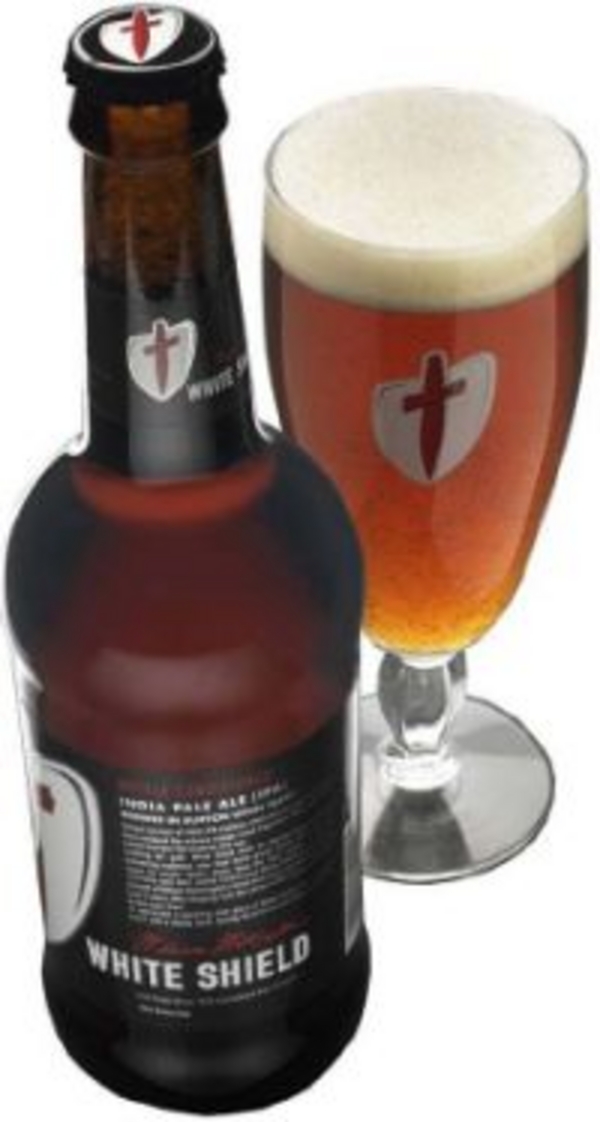A spoonful of yeast makes beer age well
Added: Saturday, November 30th 2013

When Brakspear Triple was launched in 2005 I described it as “one of the best new beers to appear in Britain for many years”.
It was a strong, 7.2% bottled beer produced to mark the return to Oxfordshire of the Brakspear brewery. The Brakspear family established a brewery in Henley-on-Thames in 1779. The brewery logo of a bee was taken from the symbol on the mitre of Pope Adrian IV, formerly Nicholas Breakspear from Hertfordshire, a family distantly related to the Henley branch.
The Henley brewery closed in 2002 and there was much rejoicing when its equipment was moved to nearby Witney following a merger between Brakspear and the Wychwood Brewery.
Triple – fermented three times, with hops added three times for good measure – was brewed to commemorate the re-opening of Brakspear and was a bottle-conditioned beer. When both Brakspear and Wychwood were bought by the national Marston’s group, Triple ceased to be bottle conditioned and became a filtered beer.
In common with fellow beer writer Jeff Evans, who produces the Good Bottled Beer Guide (CAMRA, £12.99), I thought Triple was a shadow of its former self. We lobbied Marston’s to restore it to its original style. The group has just opened a new bottling line at its Burton-on Trent headquarters and has marked the occasion by re-launching Triple in bottle-conditioned format.
Louis Pasteur, the French scientist who developed the heat treatment known as pasteurisation that kills bugs in wine, said beer was too delicate to be similarly treated. Nevertheless brewers routinely pasteurise their bottled beers and in so doing strip them of much of their flavour.
Yeast in a bottle allows the beer to enjoy a second fermentation that adds a shade more alcohol and also allows the beer to mature and improve. John Keeling, the head brewer at Fuller’s in Chiswick, west London, produces several bottle-conditioned beers including a superb Vintage Ale, and says live yeast will survive for up to three years in bottle. When the yeast cells do eventually die, proteins in the beer will continue to help it age. As with the tannins in red wine, tannins from hops will also stabilise the beer, prevent oxidation and keep bacteria at bay.
There’s an interesting debate on how long a beer should age. The monks who brew at several monasteries in Belgium and who produce magnificent bottle-conditioned beers have pleaded with me: “Please don’t age our beers for more than three years as they take on a port wine character after that.”
My response is: “But I like port wine!” I think strong beers will improve with age for far longer than three years. The biggest-selling bottle-conditioned beer in Britain is Worthington’s White Shield, brewed in Burton and a potent link with the India Pale Ales of the 19th century. At 5.6%, it’s not especially strong but, originally brewed to withstand a three to six months’ voyage to India, it ages beautifully.

I once kept a bottle of White Shield for 10 years. I shared it with Jeff Evans and we found it to be darker than a young version, softer, less hoppy and rich with fruit flavours that come from fermentation.
Some years ago I was given a bottle of Barclay’s Imperial Russian Stout that dated from the 1950s. I opened it with great trepidation, expecting a glass of vinegar. But it was silky smooth, rich and malty with notes of chocolate and coffee, and quite delicious.
There was great excitement in the beer world in 2010 when bottles of Arctic Ale were discovered in the cellar of the former Allsopp’s brewery in Burton. The beer had been brewed in 1875 for an expedition to locate the North Pole: the beer, thought to be around 10.5%, was brewed to prevent the explorers developing scurvy. I attended the ritual opening of a bottle in Burton. It was 136 years old and had the most amazing aromas and flavours of molasses, chocolate, cocoa and vine fruits.
A new beer has joined the ranks of the bottle-conditioned variety. Tring Brewery has launched Crowning Glory, 6.5%, brewed in collaboration with Edgar Wright, who produced the film World’s End, a dark comedy featuring a pub crawl. The bronze coloured beer has orange fruit, caramel and toasted grain on the aroma, with spicy hops and roasted grain developing on the palate.
I tasted it young. Think what it will be like in three or 30 years’ time.








